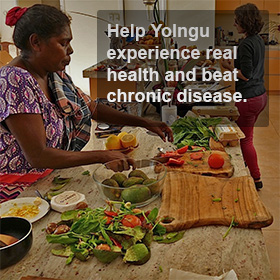Systemic Issues and Social Justice Outcomes
The Yolngu people face huge gaps in their understanding about mainstream and modern knowledge. This is, generally speaking, the ultimate cause of Indigenous marginalisation, because the dominant culture of Australia fundamentally does not understand the mechanisms for this cultural and linguistic isolation and finds it too inconvenient to seriously challenge cross-cultural and language barriers. Why Warriors primary purpose is working to rectify this cultural cause of marginalisation and it is integrated into AHED’s work with Aboriginal clients. But the greater challenge in establishing successful locally- controlled enterprise has proven to be a range of systemic challenges, in particular:
- the poor health of Yolngu visionaries and their workforce,
- low level of numeracy and literacy with no ready access to adult literacy training
- lack of access to appropriate accounting services,
- a complex array of bureaucratic and legislative hurdles that are inconsistent with the low level of development and income (see our series on Economics of Remote Communities 1 and 6),
- Accessing control over land use,
- An almost complete lack of housing for dominant culture staff supporting Yolngu owned initiatives, where the skills required are not available in the community.
The projects biggest impact beyond individual empowerment has been the gradual unpacking and exploring of these limitations with various parts of the community, to the extent that we now have groups actively challenging some of these matters, including:
- Hope for Health – already having proven success in revitalizing peoples health.
- Traditional Owners working in partnership with others to build unity and working relationships with the Lands Council to improve community control over leasing.
- Yalu Marnggithinyaraw AC partnering with The Australian Red Cross to develop and demonstrate ways that locally envisaged and run social change projects can overcome bureaucratic processes to access and manage government funds.
The AHED Project has also supported several advocacy initiatives including the:
- Re-establishment of the Galiwin’ku elders forum now called the Galiwin’ku Makarr Gärma forum, who meets to discuss local law and order, Indigenous rights, and social issues. Ongoing support is now provided through East Arnhem Mediation office.
- prevention of a treated sewage pipeline into local hunting grounds. We helped local Aboriginal land owners make the stakeholders aware that this plan was against their wishes and that they wanted a land base disposal plan that included the recycling of nutrients. The Stakeholders have now committed to an ongoing dialogue on the matter.
- logistical support and cross-cultural guidance for Indigenous groups seeking legal action as a result of poor consultation over land leases.



